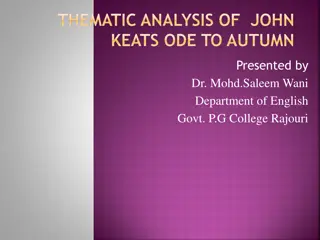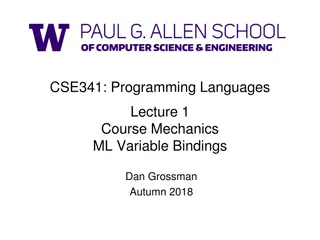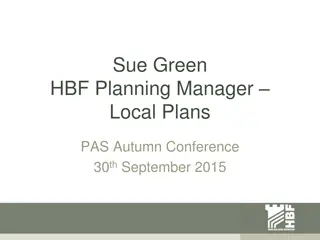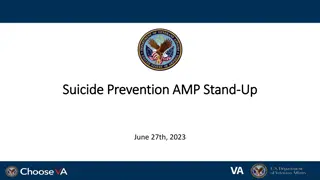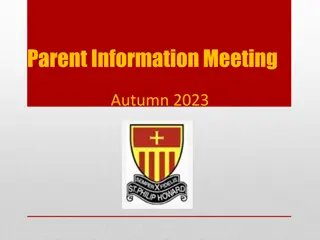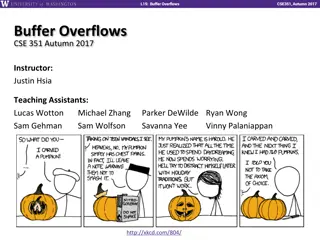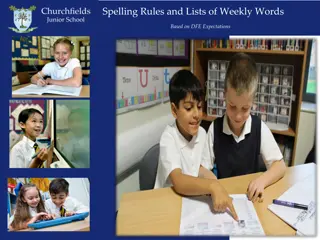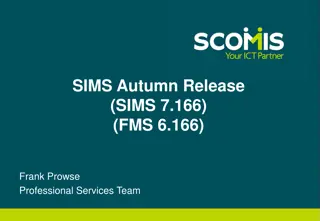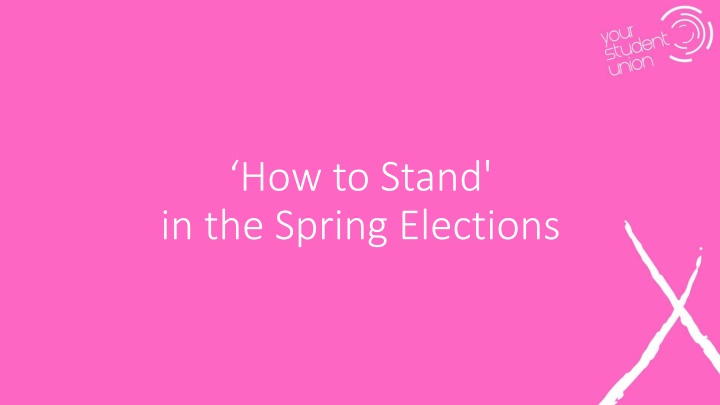
Guide to Spring Elections and Sabbatical Officers at University of Stirling
Learn about key dates for the Spring Elections at University of Stirling, the role of Sabbatical Officers as Trustees, and the qualifications required to become a charity trustee according to the relevant legislation.
Download Presentation

Please find below an Image/Link to download the presentation.
The content on the website is provided AS IS for your information and personal use only. It may not be sold, licensed, or shared on other websites without obtaining consent from the author. If you encounter any issues during the download, it is possible that the publisher has removed the file from their server.
You are allowed to download the files provided on this website for personal or commercial use, subject to the condition that they are used lawfully. All files are the property of their respective owners.
The content on the website is provided AS IS for your information and personal use only. It may not be sold, licensed, or shared on other websites without obtaining consent from the author.
E N D
Presentation Transcript
How to Stand' in the Spring Elections
Key Dates Nominations Open: 10am, Monday 11th December 2023 Nominations Close: 10am, Monday 12th February 2024 Extended Nominations Open: 5pm, Monday 12th February 2024 Extended Nominations Close: 5pm, Wednesday 14th February 2024 Candidates Briefing: 1-2pm, Thursday 15th February 2024 Candidate List Announced: 5pm, Thursday 15th February 2024 Campaigning Begins: 10am, Tuesday 20th February 2024 Voting Opens: 10am, Tuesday 27th February 2024 Voting Closes: 5pm, Thursday 29th February 2024 Results Announced: 12-1pm, Friday 1st March 2024
What are Sabbatical Officers? Sabbatical Officers provide the overall political leadership of the Union and achieve political, social and educational change that will have a lasting impact on the student experience at the University of Stirling. The core Sabbatical Officer team consists of four positions Union President, Sports Union President, Vice President Education and Vice President Communities. These full-time, paid officers, work together and independently on campaigns, projects and represent the student voice at Stirling.
Sabbatical Officers as Trustees All Sabbatical Officers are Trustees of the Students' Union. They provide oversight of what the Union does in order to make sure we are operating correctly as a charity. Section 66 of the Charities and Trustee Investment (Scotland) Act 2005 ( the Act) describes four general duties of charity trustees which are fundamental to their role as a charity trustee. Charity trustees are required to comply with these while carrying out their functions as a charity trustee. A charity trustee must: act in the interests of the charity seek, in good faith, to ensure that the charity operates in a manner that is consistent with its objects or purposes act with the care and diligence that it is reasonable to expect of a person who is managing the affairs of another person ensure that the charity complies with the provisions of this Act, and other relevant legislation
Sabbatical Officers as Trustees I am not disqualified from being a charity trustee in terms of the 2005 Act that is: I am not an undischarged bankrupt I have not granted a Protected Trust Deed (PTD) I do not have an unspent conviction for an offence involving dishonesty I do not have an unspent conviction for an offence under the 2005 Act I have not been removed by the Court of Session under the 2005 Act (or earlier legislation) from being a charity trustee or being concerned in the management or control of any charity or body I have not been removed from being a charity trustee by the Charity Commission or the High Court in England due to misconduct or mismanagement I am not disqualified from being a company director Information can be found through this portal: https://www.oscr.org.uk/guidance-and-forms/trustee-information-and-guidance-pack/
What are Volunteer Officers? In each of our four Zones, we have multiple Volunteer Officers who, collectively, contribute to Union's Executive Council. All Volunteer Officers gain an in-depth knowledge of the Students' Union and the University of Stirling, whilst they are supported in delivering a campaign or project to enhance the student experience relating to a specific remit.
Equalities Zone Volunteer Officers We also have 4 Equalities Zone Officers: Black, Asian and Minority Ethnic (BAME) Officer LBGTQ+ Officer Womens Officer Disabilities Officer To run for these roles, it is a little different. These 4 roles are not elected within Spring or Autumn Election on the Students' Union Website, but instead they are elected at the Equalities Zone Meetings. To run for these roles, you must identify with the group the role represents. All you need to do is come to the Equalities Zone meeting on the 25th of March, put yourself forward as a candidate (or nominate yourself prior to the meeting through this form), give a short speech about who you are and what you would hope to achieve, and the vote takes place there and then!
Where can you find the Election Regulations? All candidates should familiarise themselves with Schedule Two - Elections and Referendum Regulations , the governing document which outlines the regulations surrounding the Elections.
How can you nominate yourself? You can submit your nomination online through the Student Union website where you'll be asked to provide: Your candidate photo Your manifesto Your campaign slogan All candidates are required to sign the Officer Code of Conduct. You can find and agree to the Officer Code of Conduct by completing this form. The deadline for you to complete your nomination is 10:00 GMT on 12th February 2024.
How can you nominate yourself? Once your nomination has been submitted and you have completed your Officer Code of Conduct form, we will be in touch to confirm your nomination via email however, you won't be a confirmed candidate in the Election until the Elections Committee confirm your position after the 12th of February. Following the close of nominations, you will be invited to a Candidate Briefing where the Deputy Returning Officer shall communicate all important information to you on the Election process and answer any questions. If you cannot attend this meeting, you can send a representative on your behalf.
What is a manifesto? Your manifesto is a short piece of text (max. 500 words) that tells voters who you are; what you would like to achieve and why they should vote for you when voting opens. Your manifesto is not only to persuade students that they should vote for you, but it should demonstrate your skills and experience for the role. If elected, your manifesto will form the basis of what projects you will work on in the role.
What to put in your manifesto? Make sure to speak to students to find out what is important to them talk to as many people as possible about your ideas. Start with your social circle of friends to find out the changes they would like to see at Stirling. The best manifestos show that the candidate is aware and informed of the key issues facing students so why not look at previous manifestos and review Student Survey results for ideas. Speak to the current Officers and Union staff to see if your ideas are feasible and not already in place. (Book a meeting here!)
Your Manifesto: Top Tips Introduce yourself and your previous experience what skills do you have that would make you suitable for the role? Set out your top priorities (3-4) that you would like to focus on if elected. Be creative but make it relevant! Ensure your ideas are realistic and achievable. Provide ideas on how you would like to solve issues facing students at Stirling. You only have 500 words for your manifesto so be concise and use clear language/text. You might want to use snappy titles to get people's attention quickly. Make sure to check grammar and spell check. Tell students about you, not your opponents!
Publicity All printed publicity material shall be supplied by the Union. Sabbatical Officer candidates will be entitled to a total of 20 A3 sheets, and Volunteer Officers of 10 A3 sheets. For other campaigning, you can design your online publicity to suit the channel you re sharing it on, i.e. Teams, Canvas, Twitter, Instagram, Facebook.
Publicity Guidance In your publicity designs, you may wish to include the following: Your name and the position you are running for. The Union logo. The Union website address for online voting: stirlingstudentsunion.com/your-voice/elections or just stirlingstudentsunion.com The times of voting which are Between 10am on Tuesday 27th February and 5pm on Thursday 29th February 2024 .
Publicity Guidance Our Marketing and Communications team have created a Digital Resources Election Pack. This pack has information on how to create different publicity for your campaign, the logos you can include and links to helpful websites.
Why do students vote? Most common reasons: "I saw their publicity on the Union website" "They align with my views" "I read a post of theirs on social media" "I read their manifesto" "They spoke at a club meeting" "They seem nice" "A friend of mine asked me to vote for them"
Why do students vote? The art of converting many short meaningful conversations into a vote is what wins elections! A key skill for a campaigner is to be able to make their campaign relevant to voters, being able to pick the right campaign point to speak about that is most applicable to the situation and also engaging those students who don t see the elections as something that is relevant to them. You can ask about their experiences and get them fired up to tell you about their injustice (whether that be online accessibility or concerns about accommodation) and offer them your vision from your campaign and how you will change the situation if you are elected. Be prepared to be persuasive and confident to gain votes
Campaign Team You may wish to think about having a campaign team to help you during the Elections. This may be a mix of low and high commitment, from those who change their profile photo, to those who help prepare campaign materials and campaign on your behalf. A few things to think about: What would be best to be done by you and what can be done by your team? What roles do you think you should have on your team? Remember, your campaign team are representatives of you as a candidate and must also adhere to Schedule Two - Elections and Referendum Regulations . You are responsible for your campaign team in this.
Any Questions? Get in touch at natalie.hay@stir.ac.uk.






